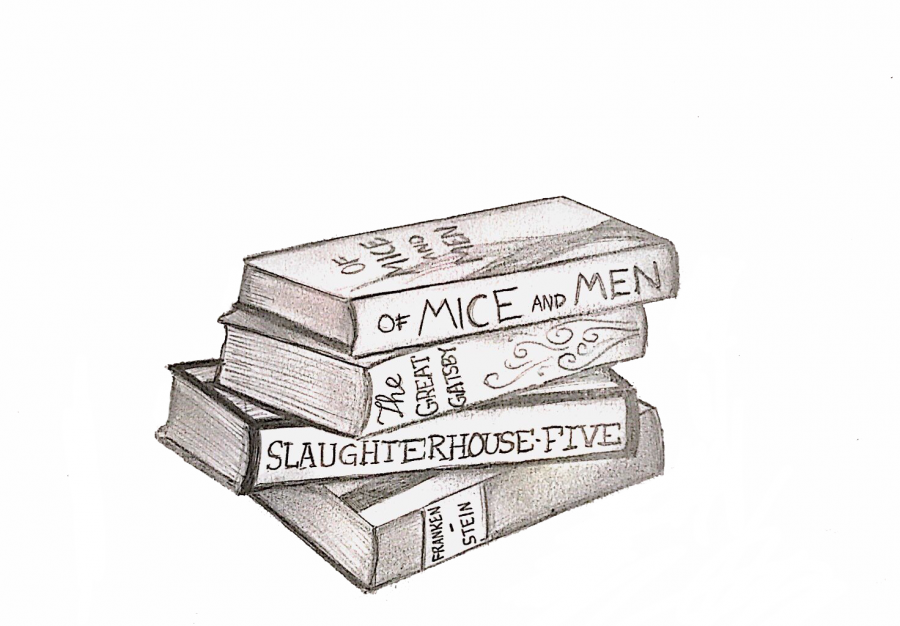The EHS English curriculum needs revamping
December 26, 2018
Unfortunately, in middle school and especially high school, it’s rare for students to appreciate English class. This has little to do with their desire to learn, read, and write, and more to do with the strict curriculum that has been put in front of them, and the lack of excitement surrounding it.
In elementary school, students develop an interest in reading because they are being introduced to a variety of books from all sorts of genres. Teachers and librarians read aloud their favorite books, allowing for students to witness passion for reading first hand. Authors even come to school and read their own work. Students are incentivized to read with logs that lead to tangible rewards and book fairs to look forward to. Meanwhile, in high school, reading is seen by students as a chore that will take up an hour of their night each day until the book is finished.
One major cause of the stigma students have about reading is the overwhelming presence of classics in their curriculum. Towards the start of middle school when students are handed a book that’s been deemed a classic, they expect to read something that will rock their world. Now, when students are handed one, they groan because they know that there is a slim chance that will happen.
I think the problem with classics is that they take the pleasure out of reading. Often students can no longer immerse themselves into the characters’ worlds because they are held back by confusing plotlines, unfamiliar dialect, and a lack of context. These barriers prevent reading from being something to look forward to, and make it out to be a task.
Now I’m not saying that classics should be wiped out of a school’s curriculum entirely–I understand their presence can help to open readers’ eyes to new eras of history every once in a while. However, when reading is integrated into the English classroom in a way that only serves students after a long road of historical learning, it adds to the idea that reading is a task.
Most importantly, there are other works of fiction worth acknowledging in a classroom setting. I believe that sacrificing a couple of classics for a few modern-day, relatable works of fiction will do more good than harm. If students are able to read novels other than what they are being force-fed, novels that can teach them things directly applicable to their own lives and allow them comfort where they might connect, then they might begin to enjoy reading outside of the classroom. Let’s just hope that it’s not too late.
Reading has shown to be vastly important to the human brain. It can make someone more empathetic, allow them to fall asleep faster, and can even help to prevent Alzheimer’s disease, among other things. The rewards of reading are extensive, and should not be ignored in favor of a pretentious English curriculum.


